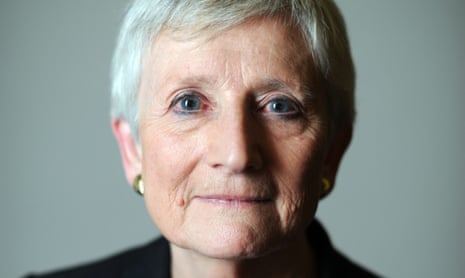Britain would be left more exposed to foreign terrorists if voters choose to leave the European Union, former security minister Pauline Neville-Jones has claimed.
In an article for the Guardian, Lady Neville-Jones directly confronts the argument of senior advocates of Brexit, including former work and pensions secretary Iain Duncan Smith, that EU membership is a threat to national security because it entails an “open door” policy at Britain’s borders.
“This really is nonsense,” she said. “‘Free movement’ actually means the ability of EU citizens to work in Britain, not to enter Britain unchecked. In fact, the UK operates full border controls for all entrants into the UK irrespective of nationality or point of entry.”
She added: “Because we will not join the passport-free Schengen area, the control of our borders will remain in national hands. Since 2010, the UK has turned away about 6,000 European nationals from entering our country on security grounds. Hardly unguarded border control allowing people to wander in.”
Instead, Neville-Jones believes that if Britain left the EU, security and intelligence-sharing would be jeopardised; and it would become impossible to carry out border checks overseas – in Paris, for example.
“The irony is that if we left the EU, our border control could well actually deteriorate. Those checks we conduct in Calais or Paris in relation to the [Channel] tunnel and Eurostar, even if not EU treaty-based, would be at severe risk following Brexit, with the likely result that the migrant jungle would establish itself in Kent.”
Neville-Jones served as a security minister in the early days of the coalition government from 2010, and is also a former chair of the joint intelligence committee.
Her contribution is the latest in the fraught debate about whether Britain would be safer outside the EU, which gained new resonance last week in the wake of the terrorist attacks on Brussels. Former MI6 chief Sir Richard Dearlove claimed earlier this week that Brexit would make Britain safer, by allowing the government to control migration from the EU.
He also insisted that security co-operation with the “leaky ship” of the EU was not worth Britain’s while.
Neville-Smith disagrees, however, saying: “By cooperating with European partners and contributing some of our technical strengths we not only serve their interests but our own.
“The security situation is not static. We are in a generational struggle with terrorists in which Europe is a central target of these wicked people out to kill,” she said. “We can expect some tough moments ahead. It is in the national interest for the prime minister, home secretary and senior security officials to be in the room where decisions affecting UK security are made in future. I hope we decide to remain.”
Her language echoed that of home secretary, Theresa May, who told the House of Commons on Wednesday that the battle against Islamic extremism was “the challenge of a generation”.
With almost three months to go until the referendum, on 23 June, leave campaigners know that fears about uncontrolled migration from the rest of Europe and beyond constitute one of their strongest political cards.
But the remain camp hopes to convince the public that staying inside the EU is the safest option, economically, politically, and in terms of national security – a strategy derided by the leave side as “Project Fear”.
